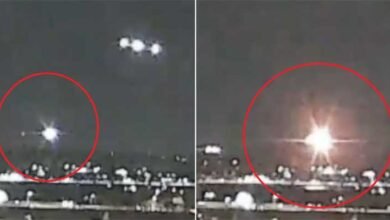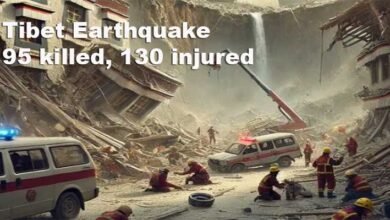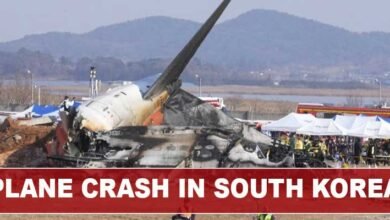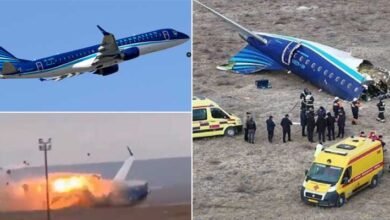Israel-Iran Ceasefire Holds Amid Fragile Regional Stability
The announcement follows intense military exchanges, including Israeli strikes on Iran’s nuclear facilities and a retaliatory Iranian missile attack on the U.S. Al Udeid Air Base in Qatar.
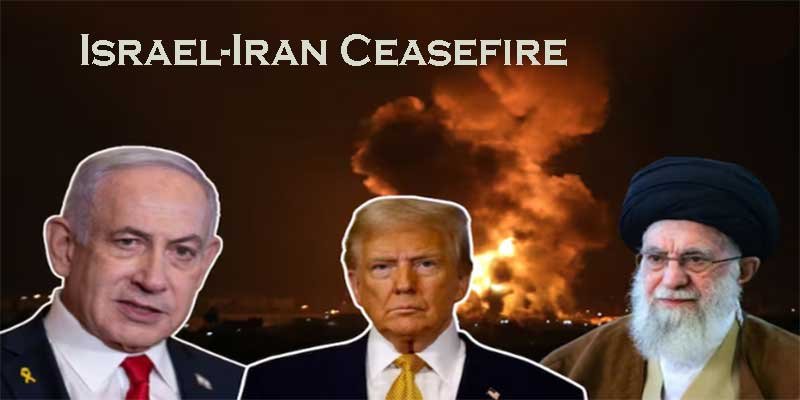
ISRAEL-IRAN CEASEFIRE – A ceasefire between Israel and Iran, brokered by U.S. President Donald Trump, took effect early Tuesday morning, bringing a temporary halt to a 12-day conflict that has shaken the Middle East. The announcement follows intense military exchanges, including Israeli strikes on Iran’s nuclear facilities and a retaliatory Iranian missile attack on the U.S. Al Udeid Air Base in Qatar. While both nations have agreed to the truce, recent missile activity and deep-seated mistrust cast uncertainty over its durability.
Ceasefire Announcement and Implementation
On June 23, President Trump announced a “complete and total” ceasefire via Truth Social, stating it would be phased in over 24 hours, with Iran halting attacks first, followed by Israel 12 hours later. The truce officially began at 7:30 a.m. local time in Iran on June 24, according to Iranian state television. Israeli Prime Minister Netanyahu confirmed Israel’s acceptance, stating the country had achieved its objectives, including “eliminating the immediate threat” of Iran’s nuclear and ballistic missile programs.
However, hours after the ceasefire was announced, Iran launched a barrage of missiles toward Israel, killing three people, according to Israel’s military. This prompted air raid sirens across the country and raised fears of a violation. Iran’s Foreign Minister Abbas Araghchi stated that Iran would halt airstrikes if Israel reciprocated, but no official confirmation of the ceasefire agreement has come from Tehran, with some Iranian officials framing the truce as a victory following their “successful” attack on Al Udeid.
Casualties and Humanitarian Impact
The conflict has exacted a heavy toll. Iran’s Health Ministry reports over 430 civilian deaths and 3,000 injuries since Israel’s initial strikes, including attacks on a hospital in Tehran and the deaths of at least six nuclear scientists and senior military figures, such as IRGC commander Gen Hossein Salami and chief of staff Maj Gen Mohammad Bagheri. In Israel, 24 deaths and nearly 685 injuries have been reported, with significant damage to residential areas and infrastructure.
The strikes have disrupted regional stability, with Qatar, Kuwait, and Bahrain closing their airspaces and airlines suspending flights to the Middle East. Iran imposed a nationwide internet shutdown for 24 hours, complicating communication and reporting. The targeting of nuclear and energy facilities raised concerns about global energy markets, with Qatar condemning Iran’s attack on Al Udeid as a violation of its sovereignty.
Diplomatic Efforts and Regional Reactions
Diplomatic attempts to resolve the conflict have faltered. Talks scheduled for June 15 between Iran and the U.S. were canceled after Israel’s initial attack, with Iran refusing to negotiate under fire. Efforts in Geneva, New York, and Istanbul yielded no breakthroughs, though Qatar played a key role in mediating the ceasefire, with Vice President J.D. Vance coordinating with Qatar’s Prime Minister.
Global reactions vary.
The EU, led by Ursula von der Leyen, welcomed the ceasefire as a step toward stability, urging Iran to engage in diplomacy. China condemned Israel’s violation of Iran’s sovereignty and offered mediation, while Russia, Pakistan, and others called for an immediate U.N. resolution for a ceasefire. Egypt, Cuba, Chile, and Venezuela denounced the U.S. strikes, warning of regional escalation. Iraq’s Grand Ayatollah Ali al-Sistani cautioned against targeting Iran’s leadership, predicting “dire consequences.”
Iran-backed groups, including Kataib Hezbollah in Iraq and the Houthis in Yemen, threatened attacks on U.S. bases and regional waterways if the U.S. escalates further. Iran’s Supreme Leader Ayatollah Ali Khamenei warned of severe repercussions for U.S. involvement, while Israel’s Netanyahu suggested the Iranian regime is “very weak” and hinted at broader goals beyond nuclear disruption.
Analysis: A Fragile Truce
The ceasefire represents a potential de-escalation, but its success hinges on mutual compliance. Israel claims to have significantly degraded Iran’s nuclear and missile capabilities, while Iran asserts its retaliatory strikes forced a truce. The U.S. involvement, particularly “Operation Midnight Hammer,” has drawn criticism for escalating tensions, with some analysts questioning whether the strikes were based on verified intelligence of an imminent Iranian nuclear threat. The lack of transparency and the civilian toll raise concerns about the conflict’s broader implications.
The International Atomic Energy Agency (IAEA) reported no immediate radioactive contamination from the strikes but warned of risks to facilities like Bushehr. The conflict’s economic impact, including disruptions to global energy markets and regional trade routes, remains a concern, particularly for Gulf states.
Looking Ahead
As the ceasefire takes hold, the international community watches closely. NATO leaders are meeting in the Netherlands to discuss regional security, while the U.N. Security Council continues to push for a diplomatic resolution. The conflict’s ripple effects, including strained U.S.-Iran relations and heightened Israel-Iran animosity, suggest that lasting peace will require sustained diplomatic efforts. For now, the Middle East remains on edge, with the ceasefire offering a glimmer of hope amid a volatile landscape.




